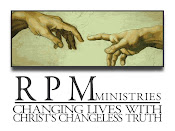The daughter of loving, Christian parents, Michelle took up
an interest in sports and began dieting to lose a few extra pounds. Initially,
her pride was fueled by compliments and envious stares at her figure. What
started out as a healthy interest became a dangerous obsession, as Michelle purged
every calorie by over-training at the gym and running marathons. As others’ concern
grew, she began entering – and winning – beauty pageants. Over the next several
years, Michelle’s health deteriorated; her weight at 84 lbs, she blacked out
while running one morning. At this point, she cried out to God – realizing she
desperately needed help – and began the hard work of renewing her mind to
overcome this life-dominating bondage.
I originally purchased this book for a counselee, who, like
Michelle, developed “exercise addiction” as part of her anorexic behavior. As
someone who had experienced this, Michelle’s angle – describing what goes on in
the mind of an “exercise addict” and how to work fitness back into her life in
a God-honoring way – is a unique and helpful one.
Michelle points the reader to the principles she found in
Scripture at her lowest points, and as her spiritual life improved, so did her
health. Immersing herself in the Bible, she was able to compile numerous
passages that directly combatted lies she had believed for years; and re-found
her identity in Christ. After struggling to eat her first meal in months,
Michelle turned to the Word:
“Glancing at the daily reading plan outlined in my Bible, I turned to the suggested passage of Romans 8:1-17. I could hardly believe my eyes when they fell on the very first verse I read: “So now there is no condemnation for those who belong to Christ Jesus.” My tear-stained journal from that day reads: “Simply because I have confessed belief in His Son, God has wiped my life clean. No questions asked, no guilt-trip. He sent His Son to die so that His Spirit could live in me, and now, I can follow Him instead of calories. If I continue on this path, I am only harming myself, but living in Him will fully restore me to the girl that I used to be.”
Woven throughout Michelle’s testimony are Scriptures
defining the biblical view of beauty; reminders of God’s faithfulness; and
lessons learned about perfectionism (an attribute common to anorexics and
bulimics, which is a contradiction of the Gospel. Perfectionism is, in essence,
trusting in one’s own merit, works or abilities as a “false savior”; a means of
feeling good about one’s self – rather than resting in the finished work of
Christ. Michelle underscores the importance of Scripture in combatting the
self-absorbed thinking behind eating disorders, and, as I did, overcame her
life-threatening eating disorder without inpatient or psychiatric treatment.
She demonstrates beautifully that the Great Physician is the only Healer of our
hearts and souls – where the problem of sin lies.
Another good point Michelle makes in “The Look that Kills” is that pop-psychology and self-help
literature does not adequately address the root cause of eating disorders, and
cannot provide soul-care solutions. She points out that every book (secular or
religious) she read in the early stages of her transformation blamed the media
for the proliferation of eating disorders; yet as she dug deeper into the
Bible, she saw that human preoccupation with beauty went back to the beginning
of time.
“That was when I decided to take the self-help books back to the library. Even my resources that claimed to be “Christian” relied more on secular teachings than biblical foundations. The very problem with these books was revealed in the genre of literature and the root cause: self-help and self-esteem…..Rather than looking inside myself to discover who I was, I needed to look at who the Bible said I was. I won’t lie to you; I was discouraged at first. If you search Scripture trying to find value and worth within yourself, you will come up empty-handed every time.”
As she brings us through her years of restoration, which
ultimately meant marriage and children (a future she doubted possible), Michelle
beautifully pulls together encouragements and lessons God taught her along the
way. Her fears and the deliberate work of renewing her mind with the Word are
things any woman battling an eating disorder will relate to, and Michelle tells
her story with a touching honesty and vulnerability that points all glory back
to God. Her writing is empathetic and touching, and every point she makes is
doctrinally-sound. She includes questions for reflection and discussion at the
end of each chapter, and describes godly modifications she made to her daily
life in the final chapter to assist the reader in “putting on” new disciplines
to replace eating-disordered rituals. “The
Look that Kills” is an excellent book to encourage women preoccupied with
weight and fitness, as well as those with full-blown anorexia, turn to God and
leave this slavery behind permanently.














